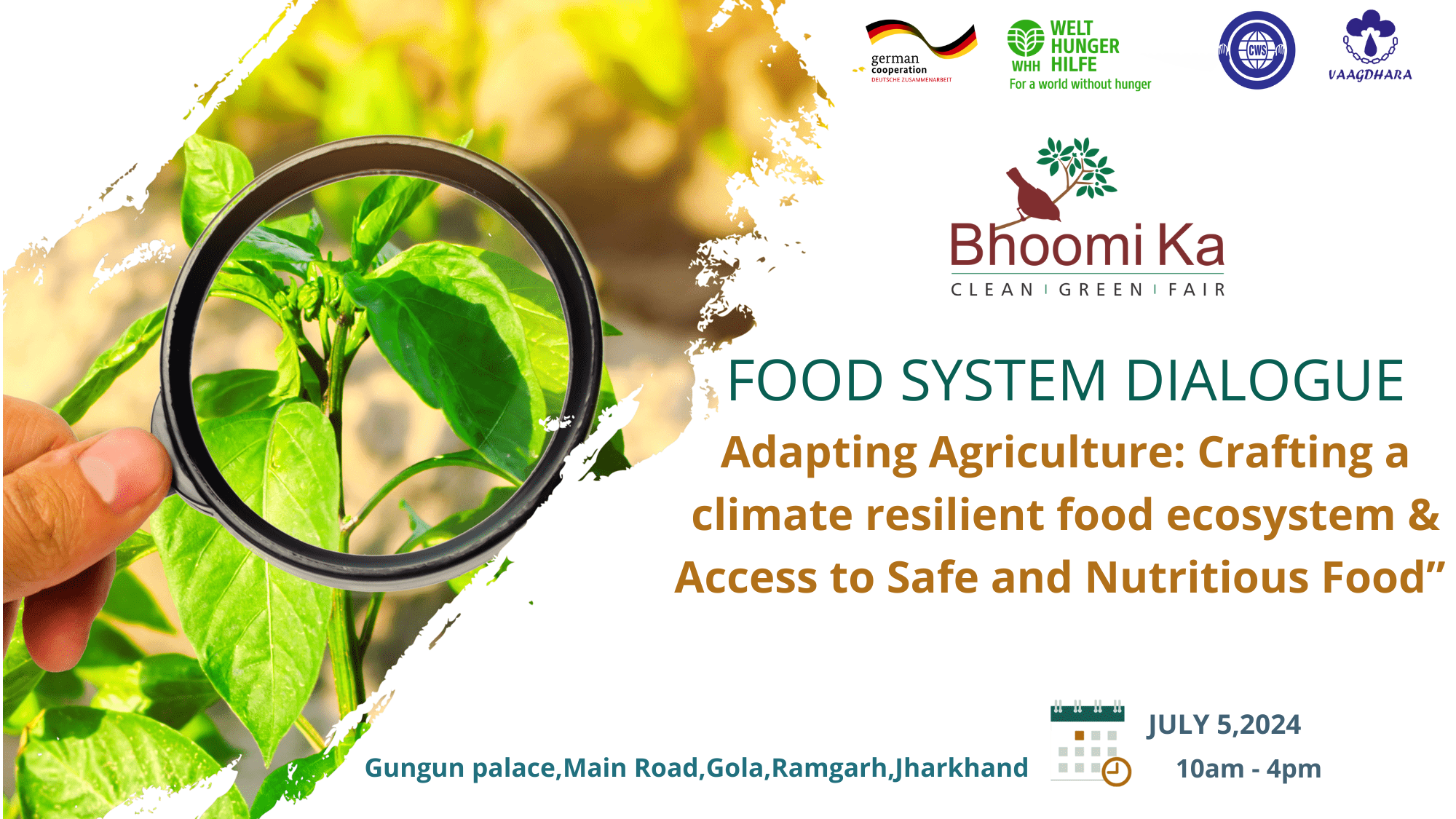
- This event has passed.
Food System Dialogue
July 5, 2024 @ 10:00 am - 4:00 pm

Introduction
The outlook for worldwide food systems is now more important than ever. The effects of climate change have greatly affected the production of crops across the globe, leading to alterations in the condition of soil, the distribution of rainfall, the prevalence of pests, the timing of plant growth, the deterioration of land, and the reduction in the variety of species. The link between climate change and the availability of food is becoming clearer, particularly in less developed nations where there is a high incidence of malnutrition, and where farming that relies on rainfall and is centered around the farm is the main practice. Given the increasing occurrence and severity of weather-related phenomena like droughts, floods, and heatwaves, it’s essential to act swiftly to change our food systems to enhance their ability to withstand climate challenges. This requires implementing strategies and methods that are crucial for building resilient food systems, which in turn guarantees sustainability and food availability for the coming generations.
One effective method for building food systems that can withstand climate changes is to embrace sustainable farming methods. This strategy includes practices like crop rotation, mixed farming, and planting cover crops, which enhance the quality of soil and reduce the risk of pests and diseases. The concept of agroecology integrates natural ecological principles into agricultural methods, promoting a variety of life forms and the benefits they provide to the environment. The practice of conservation agriculture focuses on keeping the soil covered at all times, minimizing soil disruption, and increasing the variety of crops grown. Research indicates that conservation agriculture improves soil composition, increases the ability of soil to hold water, and enhances the system’s ability to withstand extreme weather conditions. Organic agriculture, by avoiding artificial fertilizers and pesticides and relying on natural processes, also contributes to soil health and the overall well-being of the ecosystem, making it a viable option for building climate resilience.
Another important strategy for increasing resilience is to grow a variety of crops. Changes in climate can shift the patterns of pests and diseases, making single-crop farming particularly vulnerable. By adopting diverse farming systems that include a range of crops, these risks can be reduced.
Innovation is essential to changing food systems for climate resilience in addition to conventional adaptation techniques. In order to solve the difficulties of food security in a changing climate, research and development are essential in fields including climate-resilient crop types, biofortification, sustainable aquaculture, and alternative protein sources.
Access to safe and nutritious food is crucial for maintaining good health and well-being. It ensures that individuals receive the necessary nutrients to support their growth and development. In many communities, access to such food can be limited, leading to health disparities. Governments and organizations work to improve access by promoting food security measures such as affordable pricing and distribution networks. Education on nutrition also plays a vital role in helping people make informed choices about their diets. Ultimately, ensuring access to safe and nutritious food is fundamental to promoting overall health and reducing inequalities.
Objective
To facilitate collaboration among invited stakeholders in order to address obstacles and prospects for creating more sustainable food systems.
